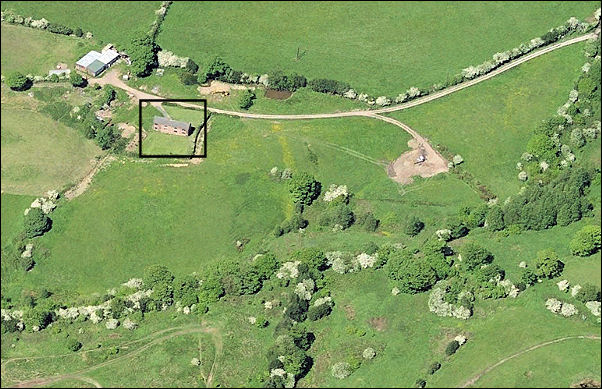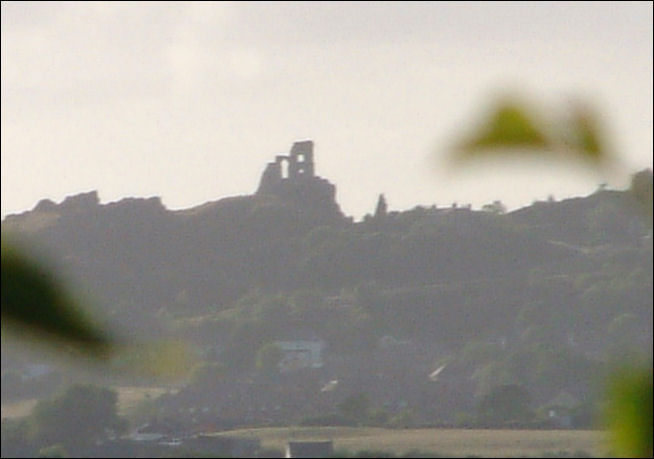Trained by his father to be a carpenter, Hugh Bourne moved to Bemmersley
to work for an uncle, where he converted to Methodism. It’s worthy of note
that this house and the barn that was used as a library are still here in
Bemmersley Road. But my goal is Ford Hayes Farm which is owned these days
by Eric and Dorothy Parrish.
“We bought the farm twelve years ago,” recalls Eric age 80. “It came up
for auction but it was in such a bad state there were no bids for it.
Another drawback, which I didn’t know at the time, was its listed
status. Anyway we bought it and what a shock we had when we saw its
rundown condition. We lived for ages in a caravan before we could get it
near to being liveable.”

The birthplace of
Hugh Bourne - Ford Hayes Farmhouse
Virtual Earth 2008
The only lane leading to the farm is narrow with no passing places,
whereas the approaches from Bucknall have been closed and overgrown for
years. Consequently the farm emits a deep feeling of solitariness.
“I actually come from nearby Kerry Hill in Eaves Lane which is quite
close,” Eric continues. “My dad was a miner and I had no connections with
farming until I left school at 14 and got a job at a farm in Bignal End.”
Eric and Dorothy met in Bucknall as children.
“Fenton was my home and I used to visit an aunt who lived in Eaves
Lane,” says Dorothy. “I loved coming to my aunt’s because country life
was so different from the Potteries. Eric later told me that he’d
watched me grow up and decided to wait until I was eighteen before
asking to marry me.”
The couple wed in 1952, and after living at a number of farms they
invested in Ford Hayes.
“If I’d known it was listed I probably wouldn’t have bought it,” says Eric
ruefully. “There was seventy acres with the house and at first I bred
livestock. But I sold some land to finance the project and now we have
just twenty acres and some horses which are my pets. Farming is too much
for me now, but I love the house and land. It’s such a special place.”

![]()
![]()
![]()